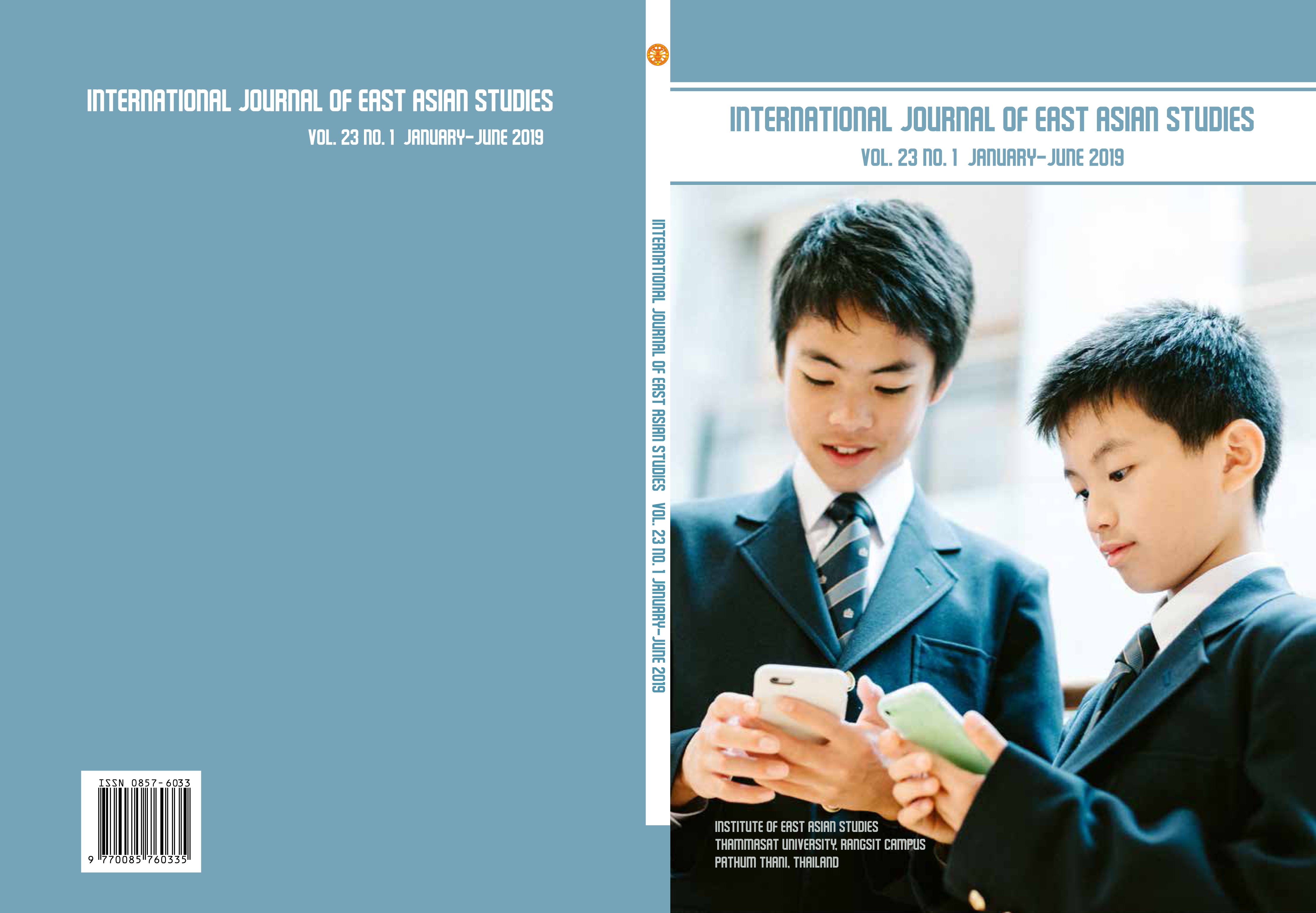Trường Chinh and His Influence on the Making of Contemporary Vietnam
Keywords:
Trường Chinh, Communist Party of Vietnam, nation-building in Vietnam, new democracyAbstract
This research focuses on three main points: firstly, the biography of the Truong Chinh who was the significant intellectual in the Communist Party of Vietnam and had a vital role in Vietnam’s nation building before Vietnam's independence in 1945 until the reformation (Đổi mới) in 1986. Secondly, this research attempted to analyze his published works including political, economic and cultural strategies during the Vietnamese revolutionary wars against French colony and American imperialism as well as his responsibility in shaping Vietnamese national culture. Thirdly, it also discusses his successes and failures in the reconstruction of Vietnam through his works. The result of this research is that Truong Chinh was one of the intellectual who was born in nationalist and philosopher family. Furthermore, his education in Western (French) system forced him to participate the nationalist movement following communist ideology. Most of his ideology is based on the Marxism and Leninism. However, he adopted Mao Zedong's tactics to practice in case of Vietnam. Truong Chinh's life was most successful as a leader in the 1945 August Revolution movement while went downhill after the failure of land reform policy between 1953 and 1956, which reduced his role in the Party. Nevertheless, he still played a role in the Communist Party. Truong Chinh is compared as an architect in creating Vietnamese society and culture under the so-called "a new democratic culture (văn hóa dân chủ mới)." Towards the end of his life, Truong Chinh left an important legacy to Vietnam today pushing forward the economic renovation.
Downloads
References
Abuza, Z. (2001). Renovating politics in contemporary Vietnam. London: Lynne Rienner Publishers.
Tréglodé, B. D. (2012). Heroes and revolution in Vietnam, translated by Claire Duiker. Singapore: NUS Press.
Asselin, P. (2013). Hanoi’s road to the Vietnam War, 1954-1965. Berkeley: University of California Press.
Bradley, M. P. (2000). Imagining Vietnam and America: The making of Post Colonial Vietnam, 1919-1950. Chapel Hill and London: The University of North Carolina Press.
Bartholomew-Feis Dixee, R. (2006). The OSS and Ho Chi Minh: Unexpected allies in the war against Japan. Lawrence: University Press of Kansas.
Duiker, W. J. (2000). Ho Chi Minh: A Life. New York: Hyperion.
Duiker, W. J. (1996). The communist road to power in Vietnam. Bourder, Colo.: Westview Press Inc.
Goscha, C. E. (2016). The Penguin history of modern Vietnam. Great Britain: Allen Lane.
Fall, B. B. (1984). The two Viet-Nams: A political and military analysis. Boulder and London: Westview Press.
Hue-Tam Ho Tai. (1992). Radicalism and the origins of the Vietnamese Revolution. Massachusetts: Harvard University Press.
Huynh Kim Khanh. (1982). Vietnamese communism 1925-1945. Cornell: Cornell University Press.
Hy Van Luong. (1992). Revolution in the village: Tradition and transformation in the North. Hawaii: University of Hawaii Press.
McHale, S. F. (2004). Print and power: Confucianism, Communism, and Buddhism in the making of modern Vietnam. Honolulu: University of Hawai’I Press.
Malarney, S. K. (2002). Culture, ritual and revolution in Vietnam. Honolulu: University of Hawaii Press.
Marr, D. G. (1971). Vietnamese Anti-colonialism (1885-1925). Berkeley: University of California Press.
Marr, D. G. (1984). Vietnamese tradition on trial (1920-1945). Berkeley: University of California Press.
Marr, D. G. (1995). Vietnam 1945: The quest of power. Berkeley: University of California Press.
Marr, D. G. (2014). Vietnam: state, war, and revolution (1945-1946). Berkeley: University of California Press.
Nguyen Khac Vien. (1971). Vision accomplished?: The enigma of Ho Chi Minh. New York: The Macmillan Company.
Ngo Vinh Long. (1973). Before the revolution: The Vietnamese peasants under the French. Cambridge: The MIT Press.
Pelley, P. M. (2002). Postcolonial Vietnam: New histories of the national past. Durham and London: Duke University Press.
Quinn-Judge, S. (2003). Ho Chi Minh: The missing years. London: Christopher Hurst.
Thai Quang Trung. (1985). Collective leadership and factionalism: an essay on Ho Chi Minh's legacy. Singapore: Institute of Southeast Asian Studies.
Taylor, Keith W. (2013). A history of the Vietnamese. Massachusett: Cambridge University Press.
Trường Chinh. (1994). Selected writings: New impression. Hà Nội: Thế giới.
Truong Chinh & Vo Nguyen Giap. (1974). The peasant question (1937-1938), translated by Christine Pelzer White. New York: Southeast Asia Program, Department of Asian Studies, Cornell University.
Tuong Vu. (2010). Paths to development in Asia: South Korea, Vietnam, China, and Indonesia. New York: Cambridge University Press.
Zinoman, P. (2001). The Colonial Bastille: A history of imprisonment in Vietnam 1862-1940. Berkeley: University of California Press.



